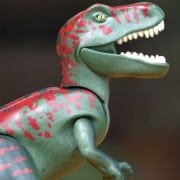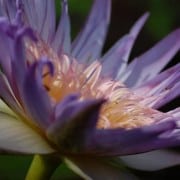The Homeopathic Treatment of Attention Deficit Disorders
Homeopathy is a safe and often effective natural therapy for children and adults with ADD/ADHD and its associated symptoms, and recent research has confirmed this. Homeopathic primary care can be effective, though this condition is best treated by a professional homeopath.
It is initially surprising and confusing to learn that the most common conventional drug for children with hyperactivity is an amphetamine-like drug called Ritalin. One would think that this type of drug would make hyperactive children even more hyperactive. But it doesn’t. This treatment of using a medicine that causes symptoms similar to those that the patient has is actually the basic principle of homeopathy. That said, in homeopathic practice, much smaller and safer doses of medicines are used, and treatment is individualized to the patient.
Hyperactivity and the various syndromes that doctors have termed this condition (attention deficit disorder/ADD; attention deficit hyperactivity disorder/ADHD) have become America’s number one childhood psychiatric ailment. Ritalin has become so common that some people are calling it “vitamin R.”
The reasons homeopaths do not prescribe Ritalin is that they are concerned about the short-term side effects and the long-term consequences of its use. Even Newsweek (3-18-96) noted: “There are no definitive long-studies to reassure parents that this stimulant isn’t causing some hidden havoc to their child.” The FDA did, however, recently report on a study that showed that it caused a rare form of liver cancer in mice.
As for the short-term problems from Ritalin, children commonly report loss of sleep, stomach pains, irritability, and sometimes facial tics. Despite these risks, it should be acknowledged that Ritalin is effective for many children. However, it makes sense to try safer methods before resorting to more potentially dangerous ones.
In addition to the safety issues, homeopaths find homeopathic medicines to be impressively effective when individually prescribed to a child and his or her unique pattern of symptoms. There are impressive studies showing significant positive results using homeopathic medicines. Most homeopaths regularly see children and adults with ADD/ADHD. For further information and insight into the homeopathic approach to this condition, see Ritalin-Free Kids by Judyth ReichenbergUllman, ND, and Robert Ullman, ND (listed in resources at the end of this article).
A Study Comparing Homeopathic Treatment and Ritalin
A unique study in Switzerland evaluated 115 children (92 boys, 23 girls) with an average age of 8.3 years at diagnosis of ADD/ADHD (Frei and Thurneysen, 2001). The children were first treated with an individually chosen homeopathic medicine. Children who did not improve sufficiently on homeopathy were changed to Ritalin and evaluated after three months. After an average treatment time of 3.5 months, 75% of the children responded favorably to homeopathy, attaining an improvement rating of 73%. 22% of children were treated with Ritalin and attained an improvement rating of 65%. The subjects were evaluated according to the Conners Global Index (CGI), a recognized scale that measures the degree of hyperactivity and attention deficit symptoms. Those who responded to the homeopathic medicine experienced a 55% amelioration of the CGI, while the children who responded to Ritalin experienced a 48% lowering of the CGI. Three children didn’t respond to homeopathy or Ritalin, and one child left the study before completion. The researchers concluded that homeopathic treatment was comparable in its benefits to Ritalin.
A Double-Blind Study Comparing Homeopathy and Placebo
John Lamont, PhD, a psychologist in Southern California, conducted a trial of 43 children with attention deficit hyperactivity disorder (ADHD) (Lamont, 1997). He randomly assigned half of the children to receive a placebo and the other half to homeopathic treatment. The researcher, the parents and the children did not know which child was given the homeopathic medicine or the placebo.
The evaluations of improvement were based on parent or caretaker ratings of ADHD behaviors. A simple 5-point scale was used: Much worse (-2); a little worse (-1); no change (0); a little better (+1); much better (+2). Parents or caretakers were contacted by telephone 10 days after the remedy/placebo was taken and again after 2 months.
Only the 200c potency of an individualized homeopathic medicine was used, based on the homeopath’s small pilot study of 15 patients in which a trend was observed that the 200c was more effective than 30c.
Results showed that the effects of the homeopathic medicine were relatively rapid (usually within 3 days) and a 2-month follow-up found that 57% of the children experienced sustained and increased improvement, with homeopathic results significantly better than placebo.
The Medicines Used
Dr. Lamont used one of the homeopathic software programs to aid his selection of the individualized homeopathic medicine. These sophisticated software programs are increasingly used to improve the speed and accuracy of prescribing homeopathic remedies, and they are now used by the majority of full-time practicing homeopaths in the U.S.
The following descriptions of the five most common homeopathic medicines used in this study are provided, but not with the purpose of encouraging self-diagnosis or self-prescribing. Because chronic ailments are best treated by a professional homeopath, children with ADHD or its related conditions should be seen by a professional homeopath.
The following descriptions provide insight into the important concept within homeopathy that asserts that people do not simply have “diseases” but have “syndromes” of symptoms of which the disease is a part.
It is remarkable that so many people today incorrectly think that people with the same disease should be given the same medicine. In homeopathy, once a conventional diagnosis is made, the homeopath then evaluates the case in greater detail to see what individualizing and unique symptoms each patient manifests.
The most commonly indicated remedy that Dr. Lamonte found for children with ADHD was Stramonium (thorn apple). It represented 35% of the patients he interviewed. Children who need Stramonium are known to experience extreme fears and exhibit violent behaviors. They are especially fearful of the dark, animals, and water. They can become truly terrified of these things. They are easily startled and will automatically, even unconsciously, respond with rage beyond proportion to the initiating event, almost as though it was an animalistic, primordial response. These tantrums may include stammering, cursing, and hitting. These intense children may also become extremely clingy to their parents, do not want to be alone, and may have strong feelings of jealousy.
Most of the time children develop the need for Stramonium from unknown events, though homeopaths have also found that certain birth traumas, violent abuse (physical or sexual), or traumatic events may lead to the symptoms that Stramonium can effectively cure.
The second most common remedy used in this study was Cina (wormseed), representing 19% of the children. Children who need Cina are extremely irritable and physically aggressive. They are prone to fighting and arguing and tend to have tantrums when they are disciplined or simply told to do something. They are disposed to biting, kicking, pinching, and screaming. They like and benefit from being rocked but don’t like being touched, carried (except over the shoulder), or even looked at. Cina is a leading homeopathic medicine for pinworms. If a child has pinworms and ADHD, Cina should be seriously considered.
Hyoscyamus (henbane) is also a common remedy for children with ADHD, for it, like Cina, represented 19% of the children in this experiment. Hyoscyamus is typically indicated when children exhibit sexualized symptoms of any type or when they have manic symptoms of various sorts, such as pressured speech, great loquacity, extreme silliness, or very high energy. These children tend to be quarrelsome and obscene. They will curse, expose themselves, play with themselves, or less often, act in a seductive fashion. They are also known to be very jealous, especially when a younger sibling is born. This jealousy may even lead to malicious violence against this younger sibling. Bedwetting may be en additional concurrent complaint.
Tarantula hispanica (tarantula spider) is indicated when children exhibit endless physical activity. These children are always active, always in motion. They are hurried and impatient, and they are soothed and hypnotized by music. They love to hear music and to dance. They tend to have a good sense of rhythm and desire to play various instruments. However, these children have a tendency to be destructive of anything that they get their hands on. They even have a tendency to rip and destroy their own clothes. They need to be watched very carefully, though they can be irritated if they know they are being watched.
Another remedy is Veratrum album (white hellebore) that is good for restless children who have difficulty maintaining concentration, following directions, or staying at their desk. These children are constantly busy and hurried and have an unusual desire to touch and/or kiss anything. These children tend to engage in repetitive behaviors, such as stacking blocks or cutting or tearing things. They are “know-it-alls” and can be bossy, self-righteous, end argumentative.
References:
H. Frei and A. Thurneysen, Treatment for hyperactive children: homeopathy and methylphenidate compared in a family setting, British Homeopathic Journal, October 2001,90:183-188.
John Lamont, Homeopathic treatment of attention deficit hyperactivity disorder, British Homeopathic Journal, Vol. 86, October, 1997, 196200.
Resources:
Paul Herscu, ND, Stramonium. Amherst: New England School of Homeopathy Press, 1996.
Judyth Reichenberg-Ullman, ND, MSW, and Robert Ullman, ND, Ritalin Free Kids: Safe and Effective Homeopathic Medicine for ADD and Other Behavioral and Learning Problems, Rocklin, CA: Prima, 1996.
Judyth Reichenberg-Ullman, ND, MSW, and Robert Ullman, ND, Prozac Free: Homeopathic Alternatives to Conventional Drug Treatment. Berkeley: North Atlantic, 2002.
Dana Ullman, MPH, The Consumer’s Guide to Homeopathy, New York: Jeremy, Tarcher/Putnam, 1996.
For books, tapes, medicines, medicine kits, software, and general information on homeopathic medicine, contact: Homeopathic Educational Services, 2124 Kittredge St., Berkeley, CA 94704; 510-649-0294. www.homeopathic.com.
This article was excerpted and adapted with permission from the e-book, Homeopathic Family Medicine. Additional sample chapters are available online for free at www.homeopathic.com. This information is presented in e-book form because the body of information and research on homeopathy is evergrowing. Homeopathic Family Medicine is a 10-module instruction course developed by Dana Ullman and the California Academy of Homeopathy.









